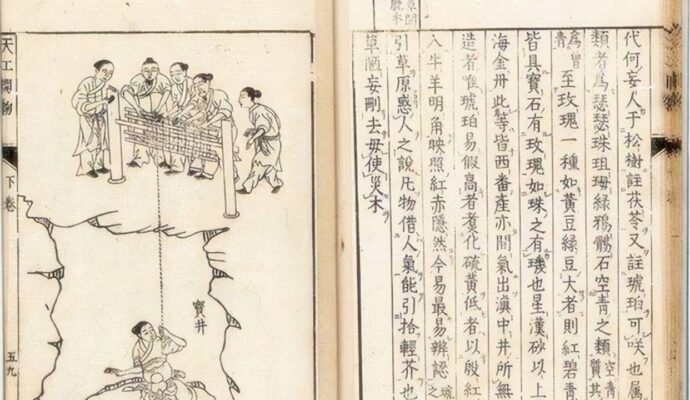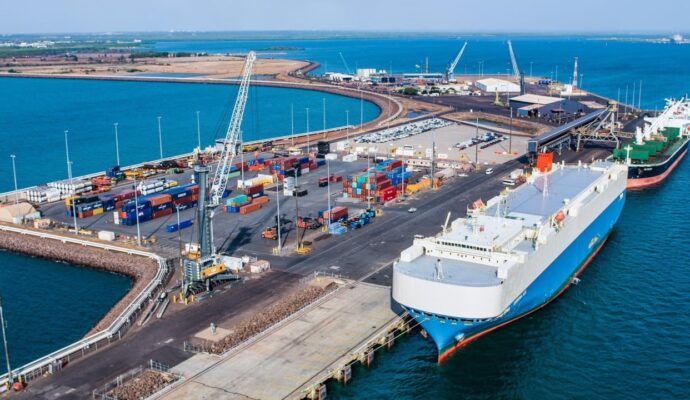
Charges against two men accused of spying for China were suddenly dropped last month because prosecutors could not obtain critical evidence from the government that Beijing represented a “threat to the national security of the UK”.
Stephen Parkinson, the director of public prosecutions, wrote to two select committee chairs to explain that despite trying over “many months”, the sought-after statements were not forthcoming from ministers and officials.
The chief prosector did not name any individual as responsible for a decision that will raise questions about Britain’s willingness to confront China. Over the weekend the national security adviser, Jonathan Powell, was accused of preventing the evidence coming forward, but Downing Street has denied this.
Spying charges against Christopher Cash, 30, and Christopher Berry, 32, were unexpectedly dropped by the Crown Prosecution Service last month, which initially only said that the “evidential standard” was “no longer met” a month before a high-profile trial had been due to start.
Cash and Berry denied the charges. At the time of the alleged offences Cash was a researcher specialising in China working for the Conservative MP Alicia Kearns, and Berry, a friend, was a researcher based in China. They were accused of passing on information about Westminster that was ultimately sent to Cai Qi, a member of China’s ruling politburo.
The requirement to describe China as a threat to national security emerged during a separate spying case of a six Bulgarians who had been found guilty of conducting espionage for Russia earlier this year under the 1911 Official Secrets Act, the same legislation under which Cash and Berry were charged.
The 1911 act said that a person was guilty of espionage if they acted in a manner “prejudicial to the safety or interests of the state” and passed on information that might be “directly or indirectly useful to an enemy”.
According to Parkinson, the court clarified that an enemy for the purposes of the 1911 act “includes a country which represents at the time of the offence, a threat to the national security of the UK” – a decision that was made “some weeks” after Cash and Berry were charged with spying in April 2024.
In the light of that ruling, Parkinson said it was “considered that further evidence should be obtained” from the government. In this case, Matthew Collins, a deputy national security adviser, was providing evidence on behalf of the government to explain the wider geopolitical context behind the spying charges.
“Efforts were made over many months,” Parkinson continued “but notwithstanding the fact that further witness statements were provided, none of these stated at the time of the offence China represented a threat to national security, and by late August 2025 it was realised that this evidence would not be forthcoming”.
“When this became apparent, the case could not succeed,” Parkinson wrote, in a letter sent to Karen Bradley, the chair of the home affairs select committee, and to Andy Slaughter, the chair of the justice committee.
The 1911 Official Secrets Act has now been repealed and has been replaced by 2023 National Security Act, which has replaced the term “enemy” with the broader term “foreign power”. It came into force in December 2023.
It is understood that government lawyers believe that it would not have been possible to designate China as a threat to national security to accommodate the new case law, because the UK has never formally done so.
China was described a “systemic competitor” in the government’s integrated review of 2021, when Boris Johnson was prime minister, and as an “epoch-defining and systemic challenge” under Rishi Sunak, when that was refreshed in 2023.
Keir Starmer, the prime minister, speaking to journalists en route to India, said the evidence had to be provided on the basis of government policy at the time the offences were allegedly committed – from 2021 to early 2023, when the Conservatives were in power and before the National Security Act came into effect.
“All I can say with great certainty is if you’re prosecuting someone on the basis of what the situation was in 2023, you have to prosecute them on the basis of what the situation was in 2023,” the prime minister said.
“That’s why the witness statement was prepared in 2023, about what the state was in 2023. And any other approach would mean you wouldn’t be able to prosecute the case. You have to prosecute people on the basis on what was the state of affairs at the time of the offence. Nothing changes that fundamental, whoever is in government,” he added.


